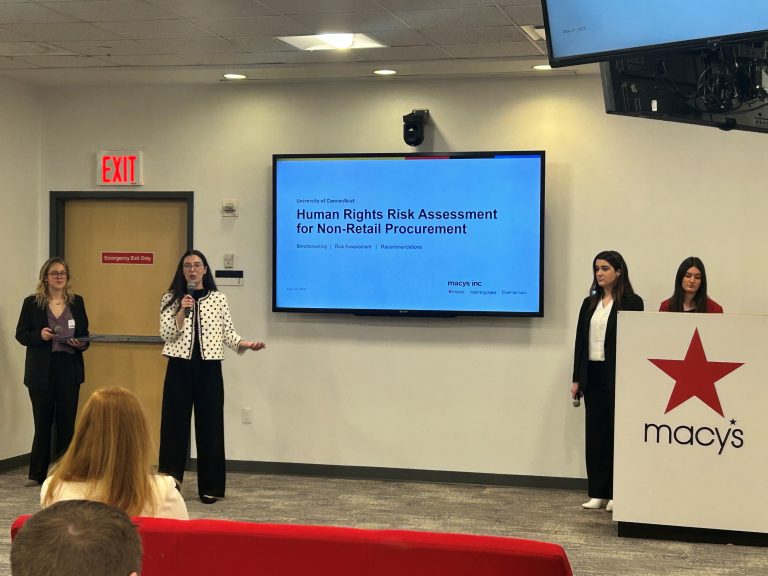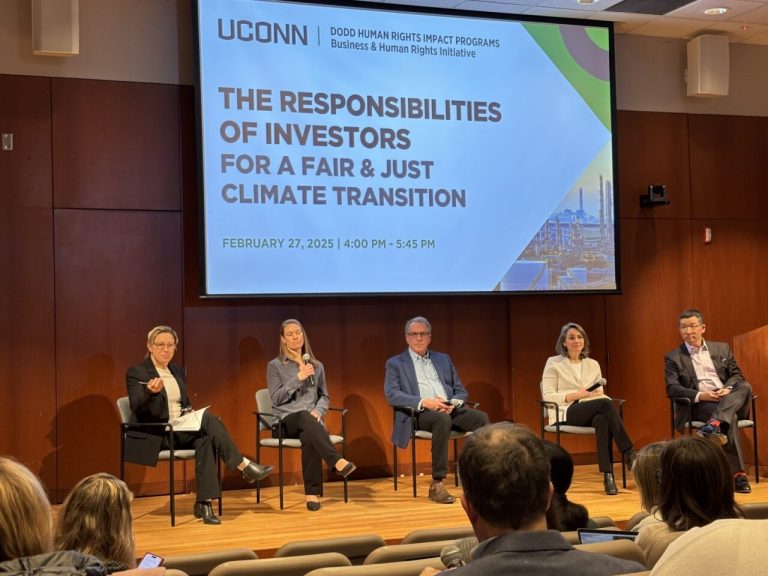-

‘This is one of the experiences that makes the UConn program distinctive’
-

State Treasurer explored how investors can ensure no one is left behind through a just climate transition during a keynote address to UConn students and faculty
-

‘It is no longer enough to have a few well-intentioned companies or individuals to focus on corporate social responsibility’
-

‘Laura has been a champion of business in human rights not only within individual companies but also globally through her participation in policymaking at the highest levels’

Molly Land
Associate Dean of Academic Affairs
Catherine Roraback Professor of Law
Professor, Human Rights

Kathryn Libal
Director, Gladstein Family Human Rights Institute
Professor, Social Work and Human Rights

James Waller
Christopher J. Dodd Chair in Human Rights Practice
Director, Dodd Human Rights Impact Programs
Professor, Literatures, Cultures, & Languages











